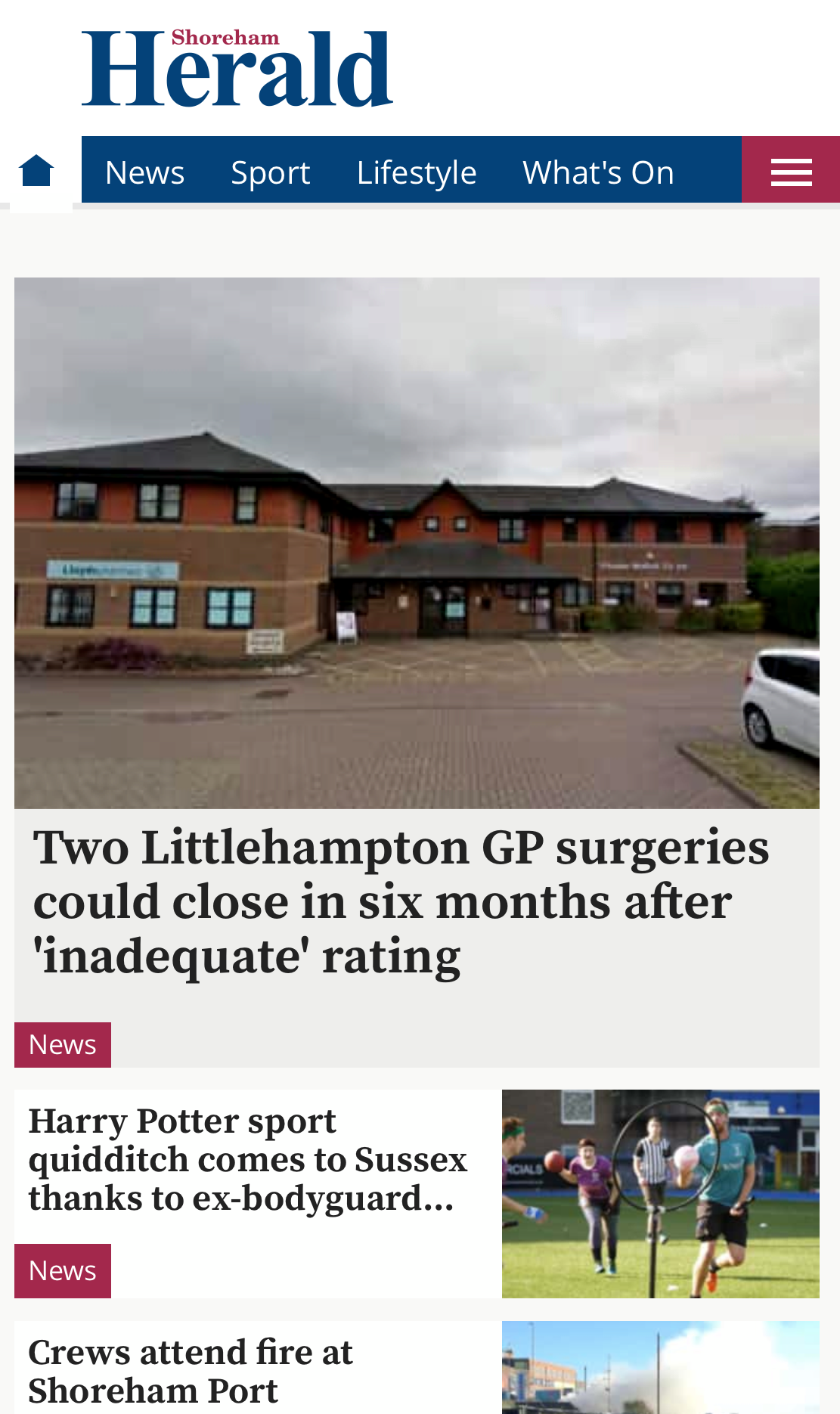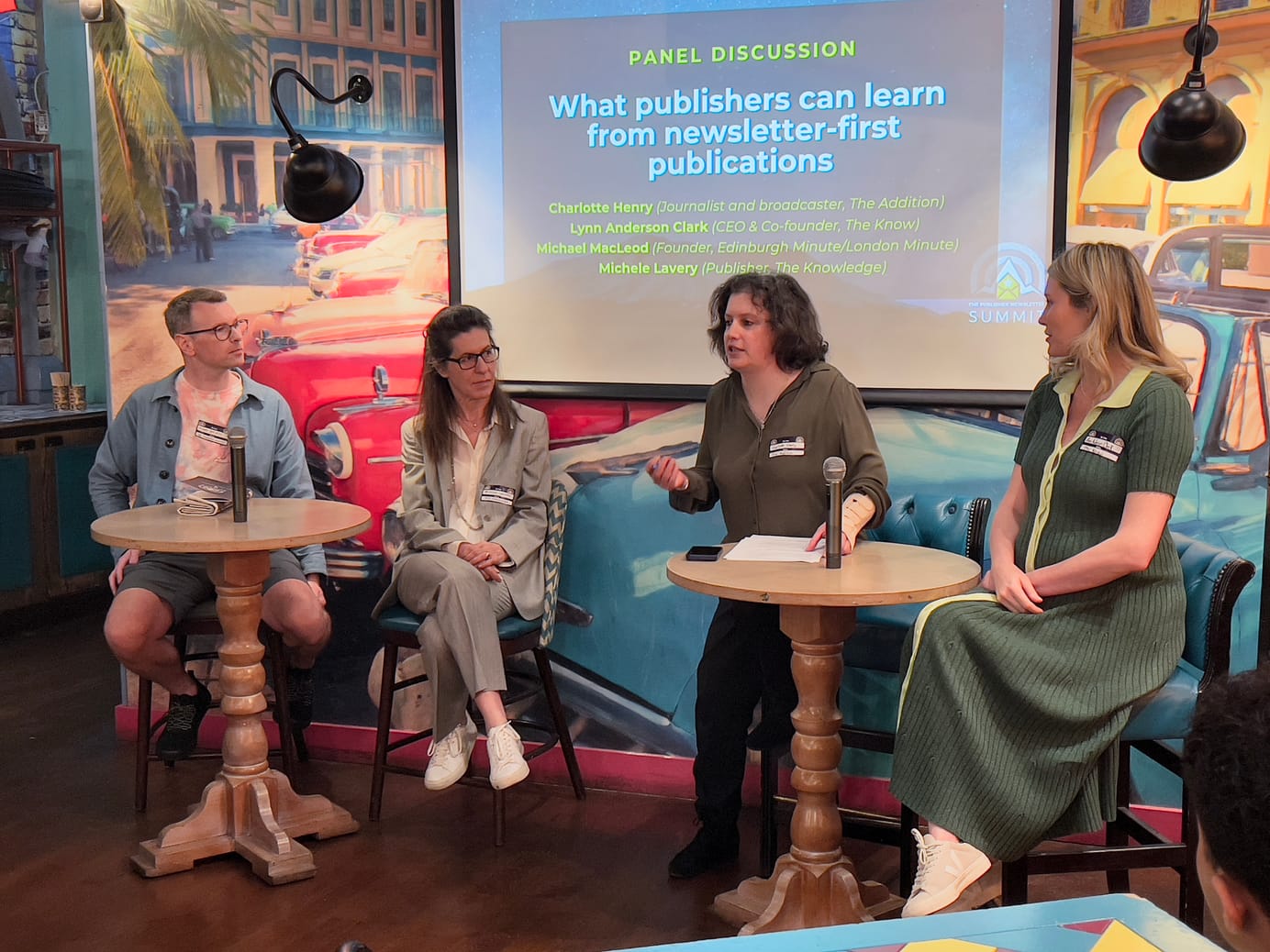
The Final Days of Johnston Press
The clock is counting down to the end of Johnston Press, one of the great regional newspaper companies in the UK. The company is doomed - but can local news be saved?
Last week, at the News Impact Summit in Cardiff, there was a spectre haunting the conversations. Nobody brought it up on stage. That would be… disrespectful. But in the breaks, in corridors, in the back of the hall, over coffee and drinks and sandwiches, a room full of people interested in the future of local journalism had one question in mind:
What will happen to Johnston Press?
The venerable newspaper publisher, with its roots in Falkirk, not far from where I grew up, is on the sale block, with no reasonable way of ensuring its future without a sale.
"Who could buy it?" people asked in hushed tones. But we all knew the answer, the same solution that Roy Greenslade had already suggested in his Guardian column:
Now, inevitably, the company will be broken up. Rival companies, themselves facing eventual extinction, will seek to prolong their lives by acquiring favoured pieces of the Johnston holdings. It is highly likely that some papers will vanish. What, for instance, will happen to Archibald Johnston’s Falkirk Herald? Business was so much less complex in his day, was it not?
Some, of course, were reflexively blaming the internet. But while the web might have delivered the killing blow, the company was already fatally wounded, in a self-inflicted blow. Greenslade again, harking back to the early 2000s:
The City immediately liked what it saw in Johnston’s new chief executive, and banks backed Bowdler’s swashbuckling adventures to the hilt. In a series of deals, he borrowed millions to buy scores of newspapers in Britain and Ireland, often paying prices that shocked, and delighted, the sellers. None was more spectacular than the 2005 acquisition from the Barclay Brothers of the Scotsman and its sister titles, for the eye-watering sum of £160m.
The business loaded itself with debt just before the market changed forever. It couldn't innovate its way out of the crisis in local news, because the only real tool it had left itself was cuts, thanks to all that debt. And savage cuts at that.
Rebecca Whittington has been researching the death spiral, and her potted history is painful in places. For example, there's an early "pivot to video" screw-up, a classic unforced error and one they can't blame Facebook for:
There was heavy investment in exceptionally expensive camera and editing equipment for most newspapers, including Sony video cameras, mics, tripods and Avid editing software – and yet no proper training or support was provided to help journalists with the skills they needed to shoot and edit videos.
And, of course, the money wasn't there. It's almost like they had a TV person in charge, who saw too much through a TV lens…
Delocalising Local Newspapers
I think, however, that the moment the company was doomed can be summed up here:
Centralisation of journalists and sub-editors meant staff working on a weekly news title might be producing it from a number of locations, and often without setting foot in the locality being served by the title.
When local newspapers cease to be in any meaningful way local, then they are already the walking dead. Without a clear structural manifestation of their inherent purpose, they are existing for the sake of represent, rather than to be the voice of the locality they represent, but no longer visit.
It is an uncertain past, followed by an uncertain future at Johnston Press. When the announcement of the sale was made this week staff were told to carry on and that it was ‘business as usual’. Sadly, following a decade of change and difficulty, this statement isn’t far from the truth.
Truth be told, a decade ago, I wouldn't have cared that much. But since I moved out of London to a town I actually care about, I feel the absence of regular local news keenly. We have the Shoreham Herald, but its lack of staffing is painfully obvious. The top story on the site, as I type this, is about two surgeries closing in Littlehampton, which quite possibly has zero impact on the vast majority of people in Shoreham.

Guess which company owns it? Hint: it's for sale.
Local News for Local People
Local media isn't doomed to fail. We've seen excellent examples of overseas companies making it work. And perhaps the fall of JP will free up some more breathing room for Newsquest and Reach to turn their titles into a more profitable, and more local, place.
But if not, perhaps this is the beginning of the fire that will burn the old industry down, so that something new can rise to take its place. Something unburdened with debt, without the legacy overheads of a former print business and with a genuine focus on the local community and their real news needs.
There's work to be done here, people, lest we start suffering from even more news deserts than we have already.
- UPDATE: [18/11/18] Johnston Press was eventually sold to its bondholders
Sign up for e-mail updates
Join the newsletter to receive the latest posts in your inbox.










